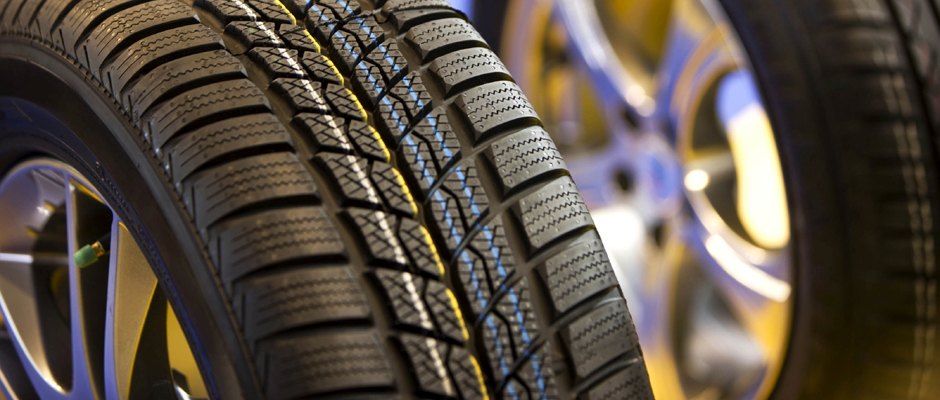It can be all too easy to simply think about how safe your car is once a year or every two years, depending on how often it needs to take the NCT. Yet while Ireland’s National Car Test offers a comprehensive evaluation, you shouldn’t simply rely on it, and continuous car safety checks should be carried out throughout the year to ensure that your vehicle is fit for the road.
While we certainly are not suggesting an NCT-style check every time you nip out to the shops, taking the time to give your car a quick once over every month, especially as we move towards winter, is probably something more people need to be doing.
1. How many cars are roadworthy?
It’s difficult to gauge this accurately but when we consider that around half of all cars in Ireland fail their NCT the first time around, it certainly paints an uncertain picture.
Of course, cars can fail the NCT for a wide variety of reasons, some of which might not theoretically be enough to class them as not roadworthy, but with such a high number failing there must be a large number of vehicles on the road in Ireland that really shouldn’t be there.
2. What are the biggest reasons for failure?
According to recent statistics, the front suspension was the most common cause of NCT failure last year, followed by beams, brake lines/hoses, mechanical brake components, and steering linkage rounding out the top five.
3. Can I get into trouble if my car is deemed not roadworthy?
Many people still assume that as long as your car passes the NCT you don’t have anything to worry about the rest of the time - but this couldn't be further from the truth.
Not only are you legally required to present your car for inspection when required, but you are also legally obliged to maintain a roadworthy vehicle. It is illegal to drive on Irish roads when your vehicle is deemed dangerous and doing so means you could face a fine of up to €2,000 and five penalty points and/or a three-month jail term.
4. What do I need to look out for?
Modern vehicles have hundreds, if not thousands of moving parts and it can be difficult to know exactly what needs regular checking. Here are four of the most common issues and how to check them.
Tyres
Tyre condition, once one of the biggest causes of failure in recent years, has improved somewhat recently but is still thought to contribute to 1 in 10 fatal crashes each year in Ireland. As we move towards autumn and the impending downpours that are sure to come, tyres are one aspect of your car you need to pay close attention to
You need to have at least 1.6mm of tread on your tyres. As Kevin Farrell, president of the ITIA explains: “It is in the wet conditions that the importance of tyre tread really comes to the fore. It can take a tyre just below the 1.6mm limit twice as long to stop on wet roads as a car on new tyres.”
So, before you get in your car today, have a quick check of your tyres and see if any of them look like they are getting a little bald. If in doubt and you don't have a tread depth gauge, use a 2 euro coin piece: Simply place the coin in the groove of the tyre and if you can see the silver rim around the coin, it means your tread depth is less than 3mm and you should consider replacing that tyre. If you're still unsure, go into your nearest garage and they'll check them for you.
Liquid Checks
Maintaining a healthy level of oil and water in your car is vital and failing to do so can lead to a host of problems - some immediate and some much further down the line.
Oil is the lifeblood of your car and running the engine without enough of it can cause the entire system to seize up, which can not only be incredibly dangerous but eye-wateringly expensive if you need to replace the whole engine. Oil should be replaced regularly (see your driver manual to see how often) but it’s also important to keep a good level at all times and especially before long journeys.
Water is another vital component and allowing levels to drop too far can cause your radiator to overheat and in the worst case even catch fire. Like your oil, it’s worth checking water levels regularly, something that takes 30 seconds when you get the hang of it.
Brakes
Considering how fast modern automobiles can go, having fully functioning brakes is perhaps one of the most important aspects of the whole vehicle. Brake pads wear out naturally so if you think your brakes are feeling a little less responsive than they used to be, take your car to the garage immediately to have them checked out. We don’t need to tell you how bad it can go when brakes fail.
You might also experience grinding or squeaking brakes which, again, could be a sign that something serious is wrong and should be your sign to head to a professional immediately.
Body Work
Thankfully, the days of seeing absolute bangers crawling around the Irish roads are pretty much over. Regulations put in place mean that it’s incredibly difficult for a car that’s well past its sell-by date to pass an NCT, but as we’ve said, the car test shouldn’t be the only time your car gets a good look over.
Scratches, dents, and bumps are part of any car's evolution and as long as they are not causing any danger, it's not these that you need to worry about. The problems really arise when you have something hanging off the car and perhaps even dragging along the floor. Sounds incredibly obvious, but you’d be surprised at what people try to get away with.
Every month or so it’s always worthwhile just taking a quick walk around the car and checking that everything structurally is as it should be. Don’t forget to look under the vehicle also - there’s a lot of important kit under there and it’s not uncommon for some of it to come unstuck.
Lights
As we mentioned earlier, beams are the second most common reason for an NCT failure. Headlights tend to have a relatively short lifespan so this is something you’ll no doubt come across often. If the Garda stops you because of a broken taillight, you’ll almost certainly just be told to get it looked at, but if you ignore it, you could be on the road to serious trouble.
Should you be stopped again you may well face a fine but if you are involved in an accident because of it, you could be in a world of problems. Lights are not something you need to check all the time, but if you’re doing a monthly check they should definitely be included.
5. Car Insurance
Maintaining a roadworthy car is not your only legal requirement when it comes to running a vehicle. Car insurance is not a choice and driving without it can lead to a fine of up to €5,000, 5 penalty points, and a prison sentence of up to 6 months.
With 123.ie, our car insurance covers you for every eventuality and can be taken as comprehensive or third-party fire and theft. We also offer excellent rates for young drivers, meaning that no matter your age or experience you can drive safely with the knowledge that you’re not alone. Accidents happen - but you’d be foolish to take the car out on the road without insurance.





